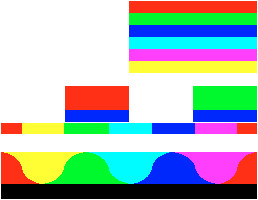Lambda Calculus as a Turing-complete System
Not only is Lambda Calculus a system for function application, but it is also Turing-complete, meaning it's able to simulate any Turing machine. Despite the syntactic simplicity of Lambda Calculus, it can simulate any algorithmic process, and only requires the three basic constructs of the language: variables, abstractions, and applications.
Church's demonstration of Lambda Calculus' expressive power laid the groundwork for this equivalence. In particular, Church introduced a method for representing numbers and operations using only numbers, known as Church Numerals. These representations define natural numbers in terms of repeated function application. For instance, the number 0 (zero) is represented as \( \lambda f.\lambda x.x \), which is a function that takes two arguments and returns the second. One is \( \lambda f.\lambda x.f\ x \), and two is \( \lambda f.\lambda x.f\ (f\ x) \), and so on. With this system, arithmetic equations can be defined as higher-order functions:
- Addition: \(\text{ADD} \equiv \lambda m.\lambda n.\lambda f.\lambda x.\; m\; f\; (n\; f\; x)\)
- Multiplication: \(\text{MULT} \equiv \lambda m.\lambda n.\lambda f.\; m\; (n\; f)\)
Even more than that, logical values and conditionals can also be encoded. The boolean value \(\text{TRUE}\) is defined as \(\lambda x.\lambda y.\; x\), and \(\text{FALSE}\) is defined as \(\lambda x.\lambda y.\; y\). Using these definitions, it is possible to create conditional expressions:
- If-then-else: \(\text{IF} \equiv \lambda p.\lambda a.\lambda b.\; p\; a\; b\)
This allows for the capability of constructing (basic) control flow purely with functions, without native syntax for conditionals.
Perhaps the most profound aspect of Lambda Calculus' expressive capacity is the ability to define recursive functions using the Y combinator, a fixed-point combinator that enables for self-reference. The Y combinator is defined as:
- \(\text{Y} \equiv \lambda f.(\lambda x.\; f\; (x\; x))\; (\lambda x.\; f\; (x\; x))\)
Using the Y combinator, functions can call themselves, allowing for the definition of iterative procedures, like computing factorials or performing list processing[5].
Despite the minimal syntax of Lambda Calculus, it is as powerful as any modern programming language in terms of what it can compute. The elegance of Lambda Calculus lies in its ability to capture the very essence of computation using only function definition and application.
Thank you for reading.
